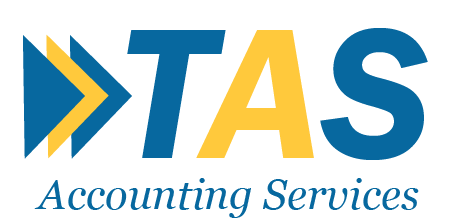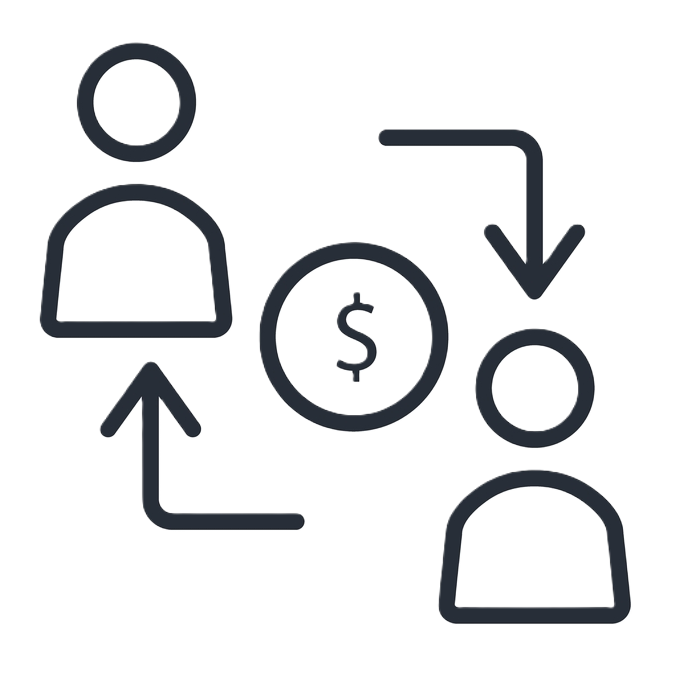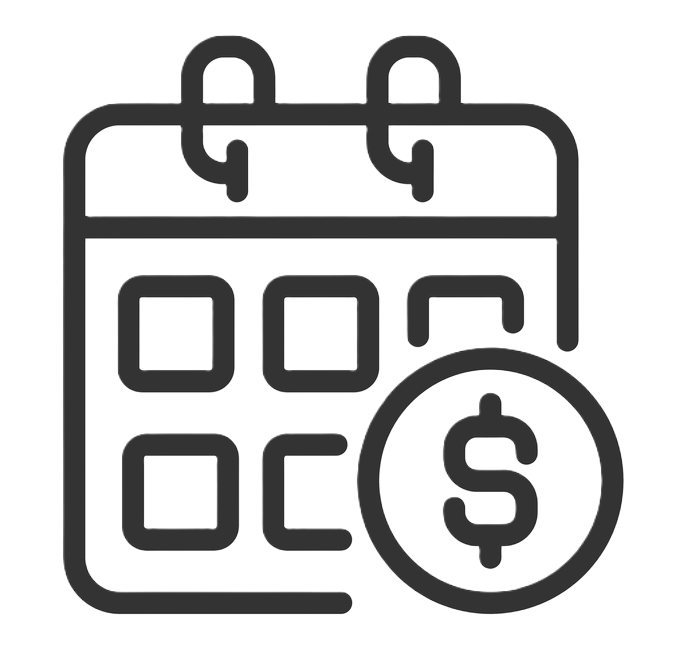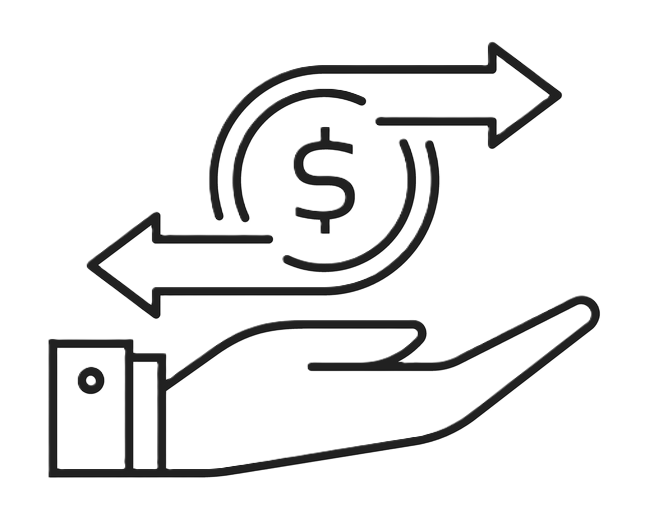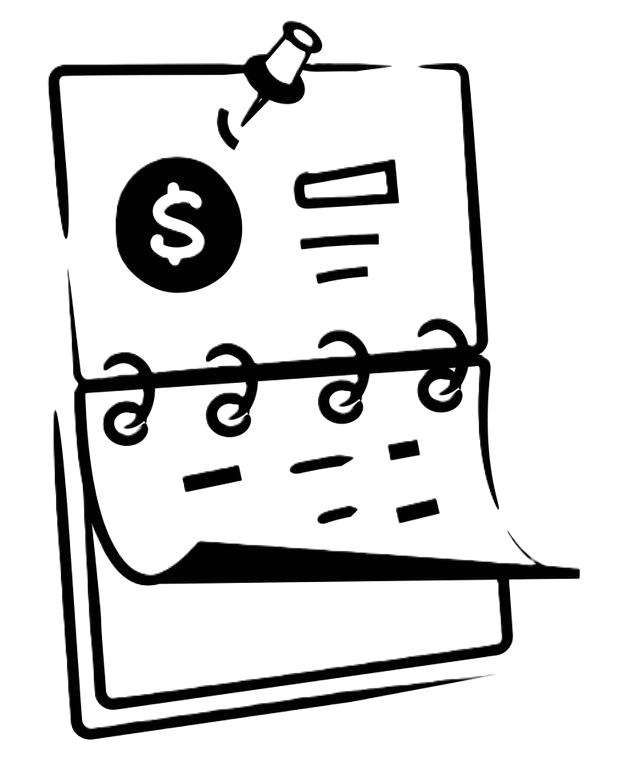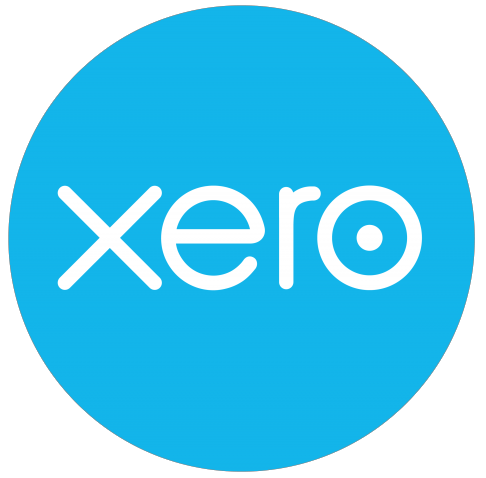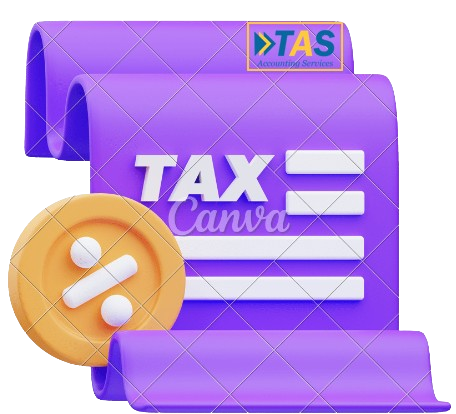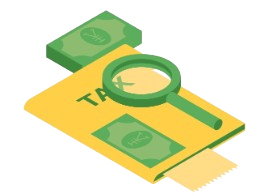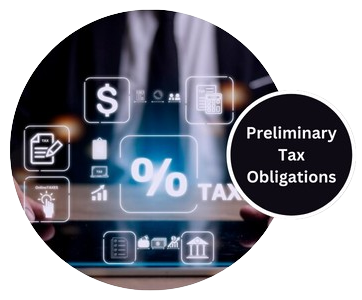How Much Tax Do I Pay on Shares in Ireland? A Comprehensive Guide
Investing in shares can be a rewarding way to grow your wealth, but it’s essential to understand the tax implications involved, especially in Ireland. Whether you’re selling shares, receiving dividends, or reinvesting profits, knowing how much tax you pay on shares in Ireland is crucial to avoid surprises and stay compliant with Irish tax laws. In this guide, we’ll break down everything you need to know about tax on shares in Ireland, including when and how you pay it, how much you might owe, and tips for managing your tax obligations effectively.
Do You Have to Pay Tax on Shares in Ireland?
The short answer is yes, you may have to pay tax on shares in Ireland, but it depends on several factors, such as the type of shares, your income level, and how long you’ve held them. Here’s a closer look at the key scenarios where tax on shares applies in Ireland:
How Much Tax Will I Pay on Shares in Ireland?
The amount of tax you pay on shares in Ireland depends on several factors, including:
To estimate how much tax you’ll pay on shares in Ireland, consult a tax professional or use an online tax calculator tailored to Irish tax laws.
When Do You Pay Tax on Shares in Ireland?
The timing of your tax obligations in Ireland depends on the type of income:
How to File Taxes on Shares in Ireland
Filing taxes on shares in Ireland can seem daunting, but it doesn’t have to be. Here’s a step-by-step guide:
Tips for Minimising Tax on Shares in Ireland
Do You Pay Tax on Selling Shares?
Yes, you generally have to pay tax when you sell shares for a profit. This tax is known as Capital Gains Tax (CGT) in many countries, including Ireland. When you sell shares, the tax is calculated on the profit you make, which is the difference between the price you paid for the shares (the purchase price) and the price you sold them for (the sale price).
For example, if you bought shares for €1,000 and sold them for €1,500, you’d owe CGT on the €500 profit. In Ireland, the CGT rate is 33%, but you can reduce your tax liability by using the annual tax-free allowance of €1,270. This means you only pay tax on profits above this threshold.
Key Points to Know About Tax on Selling Shares
Example Calculation: Tax on Selling Shares in Ireland
Let’s say you bought shares for €5,000 and sold them for €8,000. Here’s how your CGT would be calculated:
Tips for Minimising Tax When Selling Shares
If you’re wondering, “Do you pay tax on selling shares?”, the answer is yes—but only on the profit you make. In Ireland, Capital Gains Tax is charged at 33%, but you can reduce your liability by using the annual tax-free allowance and offsetting any losses. By keeping accurate records and understanding your obligations, you can ensure compliance with Irish tax laws and make the most of your investments.
If you’re unsure about your tax obligations, consult a tax advisor or visit the Revenue.ie website for more information.
How to Pay Tax on Shares?
Paying tax on shares can seem complicated, but with the right information and preparation, it’s a straightforward process. Whether you’re selling shares, receiving dividends, or managing company shares, understanding your tax obligations is essential to stay compliant with tax laws. Here’s a step-by-step guide on how to pay tax on shares, specifically tailored to Ireland.
Determine Your Tax Liability
The first step is to figure out what type of tax applies to your shares. In Ireland, the main taxes on shares are:
Importance of Tax Returns for Company Shares
What Are Company Shares & How Are They Taxed?
How to File Taxes on Shares in Ireland
📌 Step-by-Step Process:
Company Shares Tax Returns: What You Need to Know
Understanding how to file a tax return on company shares is essential for both individual investors and business owners. Whether you are selling shares, receiving dividends, or managing employee stock options, knowing how much tax you need to pay on shares can help you stay compliant and optimize your financial returns.
Capital Gains Tax on Selling Shares
Dividend Taxation: Reporting Dividend Income
Record-Keeping for Share Transactions
Tax Deductions & Credits for Share Investors
Employee Stock Options & Tax Reporting
Information Required for Filing Tax Returns on Company Shares
Filing tax returns for company shares requires gathering the right documents to ensure accurate reporting and compliance. Whether you are selling shares, earning dividends, or calculating capital gains, keeping proper records can help minimize tax liabilities and prevent errors.
Dividend Income Statements
Tax Identification Numbers (TIN)
Important Considerations for Company Shares Tax Returns
Filing tax returns for company shares requires careful planning to ensure compliance, financial clarity, and tax efficiency. Whether you are an investor, shareholder, or business owner, understanding how much tax you pay on shares and how to properly report capital gains and dividends is essential.
Capital Gains Tax on Selling Shares
Dividend Taxation on Company Shares
Record Keeping for Share Transactions
Understanding Tax Year & Deadlines
Seeking Professional Guidance for Share Taxation
Seeking Professional Guidance for Share Taxation
Staying Updated on Tax Legislation for Shares
Benefits of Filing Company Shares Tax Returns
Key Considerations for Company Shares Tax Returns
Advantages and Disadvantages of Investing in Company Shares
Investing in company shares can offer significant financial growth opportunities, but it also comes with risks. Understanding how much tax you pay on shares, when to report capital gains, and the implications of dividends is crucial for making informed investment decisions.
Advantages of Investing in Company Shares
Dividends: A Passive Income Stream
Shareholder Voting Rights
Diversification for Risk Management
Liquidity: Easy Buying & Selling
Disadvantages of Investing in Company Shares
Market Volatility: Fluctuations in Share Prices
Risk of Losing Your Investment
Limited Control Over Company Decisions
Dividends Are Not Guaranteed
Tax Implications on Capital Gains & Dividends
Who Needs Company Shares?
Investing in company shares is an excellent way to grow wealth, generate income, and diversify investment portfolios. However, shares are not for everyone, and understanding who should invest in stocks and who should avoid them is key to making informed financial decisions.
Who Should Invest in Company Shares?
Who Should Avoid Company Shares?
Individuals with Limited Financial Knowledge
People with Inflexible Cash Needs
Tax Implications of Employee Share Incentive Plans
📢 Do you have to pay tax on shares granted by your employer? – Yes! Employee share schemes come with income tax and capital gains tax (CGT) obligations, and understanding them is crucial for financial planning.
When Do You Pay Tax on Employee Shares?
Income Tax on Share Awards
Capital Gains Tax (CGT) on Selling Shares
How to File a Tax Return for Employee Shares
Types of Employee Share Schemes & Taxation
Tax Benefits of Employee Share Schemes
How Share Schemes Affect Employees & Companies
Share Options & Tax Implications
Share options are a valuable employee benefit, allowing workers to buy company shares at a fixed price—often below market value. However, understanding how much tax you pay on shares and when taxes apply is essential to maximizing this incentive.
Taxation on Employee Share Options
Income Tax, USC & PRSI on Exercising Share Options
Capital Gains Tax (CGT) on Selling Shares
Types of Company Shares & Their Tax Implications
How to Acquire Company Shares & Their Tax Treatment
Tax Implications of Owning Company Shares
Owning company shares can be a great way to build wealth, but it also comes with tax obligations. Understanding how and when you pay tax on shares is crucial for financial planning.
Capital Gains Tax (CGT) on Selling Shares
📌 Do you pay tax on selling shares? – Yes, any profit from selling shares is subject to Capital Gains Tax (CGT).
Taxation on Dividends
📌 Do you pay tax on shares that pay dividends? – Yes, dividends are considered taxable income.
Special Tax Rules for Company Shares
📌 Are company shares taxable if held in retirement accounts? – No, shares in tax-deferred accounts grow tax-free until withdrawal.
How to File a Tax Return for Company Shares
📌 How do I file a business tax return for shares? – Reporting capital gains, losses, and dividends correctly is essential for tax compliance.
Tax Deductions & Credits for Shareholders
📌 Are investment expenses tax-deductible? – Some expenses related to investing may be deductible.
Common Tax Mistakes to Avoid When Owning Company Shares
Investing in company shares can be rewarding, but it also comes with tax obligations that investors must navigate carefully. Avoiding common tax mistakes ensures compliance and financial efficiency.
Employee Stock Options & Taxation Mistakes
📌 Do you pay tax on shares received through stock options? – Yes, tax applies at different stages.
Owning International Shares – Tax Traps
📌 Do I have to pay tax on foreign company shares? – Yes, foreign shares may have additional tax obligations.
Tax Loss Harvesting – Common Errors
📌 Can I offset stock losses against gains? – Yes, but only if rules are followed correctly.
Failing to Report All Income from Shares
📌 Do you have to pay tax on shares even if unsold? – Dividends are always taxable, even if reinvested.
Incorrect Capital Gains Tax (CGT) Calculations
📌 How much tax do I pay when I sell stock? – It depends on short-term vs long-term gains.
Missing Tax Filing Deadlines
📌 When do you pay tax on shares? – Taxes are due in the same year as the sale or dividend payment.
Understanding Tax Implications for Company Shares & Share Options
Investing in company shares or participating in employee stock option plans can provide financial growth, but it also comes with tax obligations. If you’ve ever asked, “Do I have to pay tax on shares?” or “How much tax do you pay on shares?”, this guide will walk you through the essential tax considerations, helping you stay compliant while maximizing your returns.
Special Considerations for Shareholders & Investors
What Information Do You Need?
Filing Your Tax Return for Shares
📌 How do you file a business tax return with share earnings? – Follow these steps:
📢 Need help filing your share tax return? Contact our experts today! 🚀
Understanding Tax Implications of Share Awards & Stock Options
Taxation on Share Awards
✅ Solution: Plan share sales carefully to minimize CGT liability.
Taxation of Share Options
📌 Do you pay tax on shares you buy through an employee share scheme? – Yes, through two tax events:
✅ Solution: Use tax planning strategies to reduce taxable income.
Common Tax Filing Mistakes & How to Avoid Them
📌 If I sell shares, do I pay tax immediately? – Tax is due in the same tax year as the sale.
✅ Solution: Work with a tax expert to ensure compliance & accurate filing.
SWOT Analysis for Taxation on Company Shares & Filing Tax Returns
This SWOT (Strengths, Weaknesses, Opportunities, and Threats) analysis focuses on the tax implications of company shares, including capital gains, dividends, and stock options, helping individuals and businesses optimize their tax strategies.
External Risks & Challenges
Why You Need a Tax Professional for Share Taxation
📌 Filing tax returns on company shares can be complex due to capital gains tax, dividend taxation, and foreign tax rules. While tax deductions and planning strategies can reduce tax liabilities, investors must ensure compliance to avoid penalties.
Case Studies
Managing Tax Liabilities for Employee Stock Options
Capital Gains Tax on Share Sales
International Taxation on Foreign Company Shares
Frequently Asked Questions
1. Do I have to pay tax on shares I own?
Yes, company shares are subject to taxation. You may owe capital gains tax (CGT) when selling shares at a profit and dividend tax on any income received from shares.
2. Do you have to pay tax on selling shares?
Yes, if you sell shares for more than what you paid for them, the profit is subject to capital gains tax. The tax rate depends on the jurisdiction and how long you held the shares.
3. How much tax do I pay on shares?
The tax rate varies based on factors like holding period, total income, and country-specific tax laws. Long-term gains may be taxed at a lower rate than short-term gains.
4. When do you pay tax on shares?
You typically pay tax on shares when:
You exercise stock options (income tax may apply).
You sell shares at a profit (capital gains tax applies).
You receive dividends (dividend tax applies).
5. Do I have to pay tax on shares if I reinvest the money?
Yes, selling shares—even if you reinvest the proceeds—can still trigger capital gains tax unless the investment is in a tax-advantaged account.
6. How do I file taxes for shares I own?
You need to report capital gains or losses, dividend income, and any withholding tax in your annual tax return. Tax professionals can help ensure compliance.
7. Do you pay tax on shares given by an employer?
Yes, shares received as part of an employee stock plan may be subject to income tax upon receipt and capital gains tax upon selling.
8. Are company shares taxable internationally?
Yes, foreign shares may be subject to withholding tax, local income tax, and capital gains tax. Some countries offer tax treaties to prevent double taxation.
9. What happens if I don’t report share-related income?
Failing to report share sales or dividends may lead to penalties, interest charges, and tax audits. Always declare your investment income.
10. How can I reduce taxes on shares?
You can lower tax liability through:
- Tax loss harvesting (offset gains with losses).
- Holding investments longer for lower capital gains tax.
- Using tax-efficient accounts like retirement funds.
- Claiming eligible deductions on investment expenses.
📌 Need Help with Share Taxation? Contact our tax professionals today for expert guidance on tax compliance and investment strategies! 🚀
